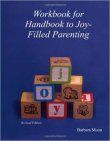Joy Groups are beginning to spread and a friend asked me recently if I could write up something about how I facilitate my Joy Group. But first let me answer the question, “What is a Joy Group?” A Joy Group is a group based on material from Life Model Works, materials that teach how God designed our brains to work and relate through joy-filled relationships. Joy is defined as “Someone is glad to be with me–regardless of my emotions or circumstances.” My Joy Group has been meeting since 2013 and we are seeing tremendous life changes as we learn relational joy, brain science, how to grow and interact with Jesus, and what to do with emotional pain. We have been using my book, Joy-Filled Relationships (amazon), based on material I’ve learned from my mentor, Dr. Jim Wilder and his ministry, Life Model Works. They have other great resources.
My purpose here is to put into writing how I facilitate my Joy Group. This is, of course, not the only way to have one. These are just suggestions and guidelines. As in all endeavors, we must be Spirit-led.
I see my Joy Group as being a little different from most small groups for several reasons. Joy Group is a place for training because we will not only be learning information, but we will be learning brain skills that are non-verbal and right-brained. These brain skills cannot be learned from a book or a video, but must be learned in joy-filled relationships with people who have the skills. This makes it important that members of Joy Group are teachable and committed to working on their own issues at some level. There will be ways of relating and approaching life that are often different than our usual reactions and habits. If we want to grow in maturity and character, there will have to be healing of unresolved emotional wounds that can keep us stuck in immaturity. This will call for a willingness to be open and vulnerable. The group will have to be a safe place so that people can share openly. In Joy Group we learn how to deal with pain and not avoid it, as well as learning how to sit with others in their pain without trying to fix them.
At the beginning of each of my Joy Group meetings we do a short time of appreciation and then we do Immanuel prayer which is interacting with Jesus. Appreciation is usually a brief sharing of something that has happened during the week that has been encouraging, joy building, an answered prayer, times with Jesus, or anything else that makes us feel warm and cozy and grateful. Appreciation is one way to get our brains ready to interact with Jesus. For our Immanuel time the facilitator wants to make sure that everyone has their Relational Circuits on. We usually do this by tapping on our chests on each side of the sternum and saying Psalm 56: 3 together. (Members would have already been taught about Relational Circuits and how we will do the Immanuel Prayer time. See Share Immanuel or Joyful Journey from lifemodelworks.org) The prayer time is a time of sitting quietly and listening to Jesus after asking Him, “Please show us where You are in the room, let us have a sense of Your presence, and answer each of us as we ask You, ‘What do You want me to know today (tonight?)?’”
After we do Immanuel Prayer we share how we related with Jesus during the prayer. This time of sharing can vary from sharing where one sensed Jesus was in the room and what He was doing to getting healed from a painful memory.
After we do appreciation and Immanuel Prayer we will have a lesson from my book that we use (Joy-Filled Relationships—amazon) or sometimes I bring a lesson from something going on in my life or supplemental material from other joy sources such as a CD by Dr. Jim Wilder or other Life Model Works books such as RARE Leadership or Joy Starts Here. Sometimes we do brain-training exercises.
The atmosphere of the group is safe, accepting, caring, and joy-filled. We are glad to be together and we are glad that others are here. We want to create belonging around us. Occasionally someone in the group will bring a small, inexpensive gift for everyone that we call, “I’m glad you are here” gifts. These have been bookmarks, handmade jewelry, candy, things that cost less than $2, etc.
I furnish a roster with emails, addresses, phone numbers, and birthdays. We try to mention birthdays and send or bring cards. Some people attend regularly and some come when they can.
We are learning, practicing, and sharing relationally the 19 brain skills that Life Model Works focuses on. A list can be ordered from their website http://www.lifemodelworks.org and they are listed in my book, Joy-Filled Relationships.
It’s good to have members who are different ages. Our group has members from 20’s to 70’s and currently we have one man. My group is by invitation only but that is not a per-requisite for groups, although it is helpful to keep in mind some of the characteristics mentioned above.
I personally love questions and discussion so we move very slowly through the book. When we finish the book, we start over. Since learning the brain skills is not just information, it takes time for the skills to work in our lives. We spend weeks on the list of maturity needs and tasks for 5 levels of emotional maturity. These help us see what needs to be worked on—what we did not get growing up and what tasks we did not learn growing up. It can be painful to realize these lacks. This is why the group has to be safe and loving and accepting as we all learn how to deal with emotional pain.
Again I say, this is how I view my Joy Group. I am available to help groups get started around the area in which I live. This material on relationships based on being glad to be together, staying relational in spite of intense emotions, acting like myself, and learning to suffer well while I’m growing in maturity is life-changing and worth all the effort. Get my book, Joy-Filled Relationships, get some people together who are open and teachable, and give it a try. Your view of relating will change, your view of God will change, and your relationship with Jesus will grow deeper and bigger. He’s always glad to be with us, no matter what!































